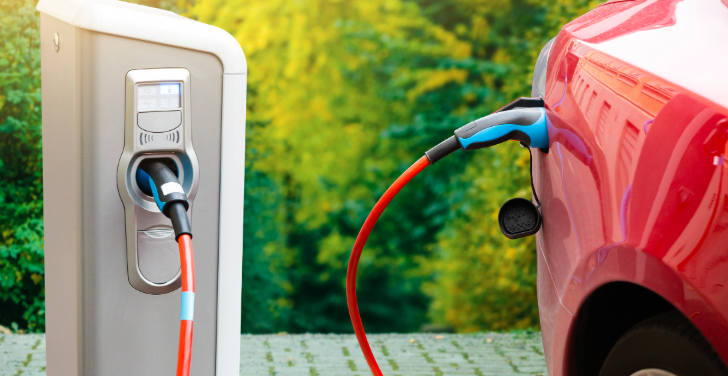Electric vehicle charging station manufacturers: Powering the Next Generation of Transportation

The global momentum toward electric vehicles (EVs) is no longer a trend—it’s a full-scale transformation of how we move, live, and power our world. As governments tighten emissions standards and consumers seek greener alternatives, the EV revolution is accelerating. However, this transformation isn’t being led by automakers alone. electric vehicle charging station manufacturers are playing a crucial role, quietly building the infrastructure that makes clean mobility possible.
From residential setups to public charging grids and commercial installations, these manufacturers are engineering the backbone of tomorrow’s electric-powered world. In this article, we explore how electric vehicle charging station manufacturers are driving progress, overcoming challenges, and shaping the sustainable future of global transportation.
The Role of electric vehicle charging station manufacturers in the EV Ecosystem
While EVs often dominate headlines, it’s the network of charging stations that determines how effectively they can serve consumers. electric vehicle charging station manufacturers are the pioneers behind this infrastructure, developing everything from simple wall-mounted chargers for home use to ultra-fast charging hubs for highways.
Their work supports a range of stakeholders:
- Private EV owners who need reliable home charging.
- Fleet operators requiring fast, scalable solutions.
- Municipalities and businesses looking to attract EV traffic with public charging stations.
- Utility providers integrating smart charging into the grid.
Without these manufacturers, EVs would be nothing more than high-tech novelties. Their infrastructure turns electric mobility into a viable, scalable reality.
Types of Charging Stations Produced by Manufacturers
To meet the diverse needs of the EV market, electric vehicle charging station manufacturers develop several types of charging solutions:
1. Home Charging Stations
These are compact, usually wall-mounted Level 2 AC chargers that allow EV owners to recharge their vehicles overnight. They’re affordable, safe, and increasingly equipped with smart features like scheduled charging and energy monitoring.
2. Public Charging Stations
Found in shopping malls, city streets, offices, and hotels, these Level 2 and DC fast chargers allow EV users to recharge while they work or run errands. Public charging is essential to reduce range anxiety and encourage broader adoption.
3. Commercial Charging Solutions
Businesses and industrial fleets depend on high-volume, durable charging infrastructure to power vans, buses, delivery trucks, and more. Manufacturers offer tailored charging systems with robust connectivity and energy management tools.
4. Highway Fast Charging Hubs
These stations are typically equipped with ultra-fast DC chargers capable of delivering up to 350 kW, recharging EVs in 20–30 minutes. They are strategically placed along major highways to support long-distance EV travel
See also: The Evolution of Animation Studios: How Technology is Reshaping Creative Storytelling
Key Features Driving Innovation in Charging Stations
As EVs become more common, consumer expectations around charging are evolving. electric vehicle charging station manufacturers must continually innovate to meet demand for convenience, speed, and sustainability. Here are some features shaping the industry:
– Smart Charging
Modern stations are internet-connected, allowing users to manage charging via apps, optimize energy consumption, and receive real-time updates. This smart functionality also enables utilities to manage grid loads more effectively.
– Dynamic Load Management
To prevent overloading the power grid, manufacturers are developing systems that distribute power intelligently among multiple vehicles, balancing supply and demand in real time.
– Integration with Renewable Energy
Some stations are now equipped with solar panels and battery storage systems, allowing clean energy to be used for EV charging and reducing reliance on fossil fuels.
– User-Friendly Interfaces
Digital screens, contactless payment options, and intuitive apps ensure a seamless user experience, even for first-time EV drivers.
Leading electric vehicle charging station manufacturers
The global market for charging stations is growing rapidly, and several manufacturers have emerged as key players:
- ChargePoint (USA) – A dominant player in North America, offering scalable charging solutions for residential, commercial, and public use.
- ABB (Switzerland) – Known for robust, fast-charging systems and advanced energy management features.
- EVBox (Netherlands) – Offers modular and flexible charging stations, particularly strong in Europe.
- Siemens (Germany) – Provides high-end industrial-grade solutions, including V2G-compatible stations.
- Delta Electronics (Taiwan) – A global leader in energy-efficient charging equipment for homes and businesses.
- Blink Charging (USA) – Focused on creating accessible public charging infrastructure across urban areas.
- Tritium (Australia) – Specializes in ultra-fast DC chargers for highway and fleet operations.
These companies are setting benchmarks in quality, reliability, and technological advancement.
Future Outlook
The demand for EV charging stations will only grow as more consumers and businesses switch to electric mobility. According to BloombergNEF, the world will need more than 300 million chargers by 2040. This presents an extraordinary opportunity for electric vehicle charging station manufacturers to lead the charge—literally.
In the future, we can expect:
- Integration of blockchain for secure payments and energy transactions.
- Expanded use of robotic charging arms for autonomous EVs.
- Rollouts of microgrids where solar, wind, and battery storage are used for completely off-grid charging stations.
Manufacturers that prioritize sustainability, user experience, and smart integration will be the ones shaping the future of transportation.
Conclusion
As EV adoption accelerates, electric vehicle charging station manufacturers are emerging as indispensable players in the clean mobility revolution. By developing robust, reliable, and intelligent charging systems, these companies are laying the foundation for a greener and more connected future.
They are not merely building machines—they are enabling freedom, convenience, and sustainability for millions of drivers around the world. Their innovations, investments, and vision are transforming how we travel, how we power our lives, and ultimately, how we protect our planet.





